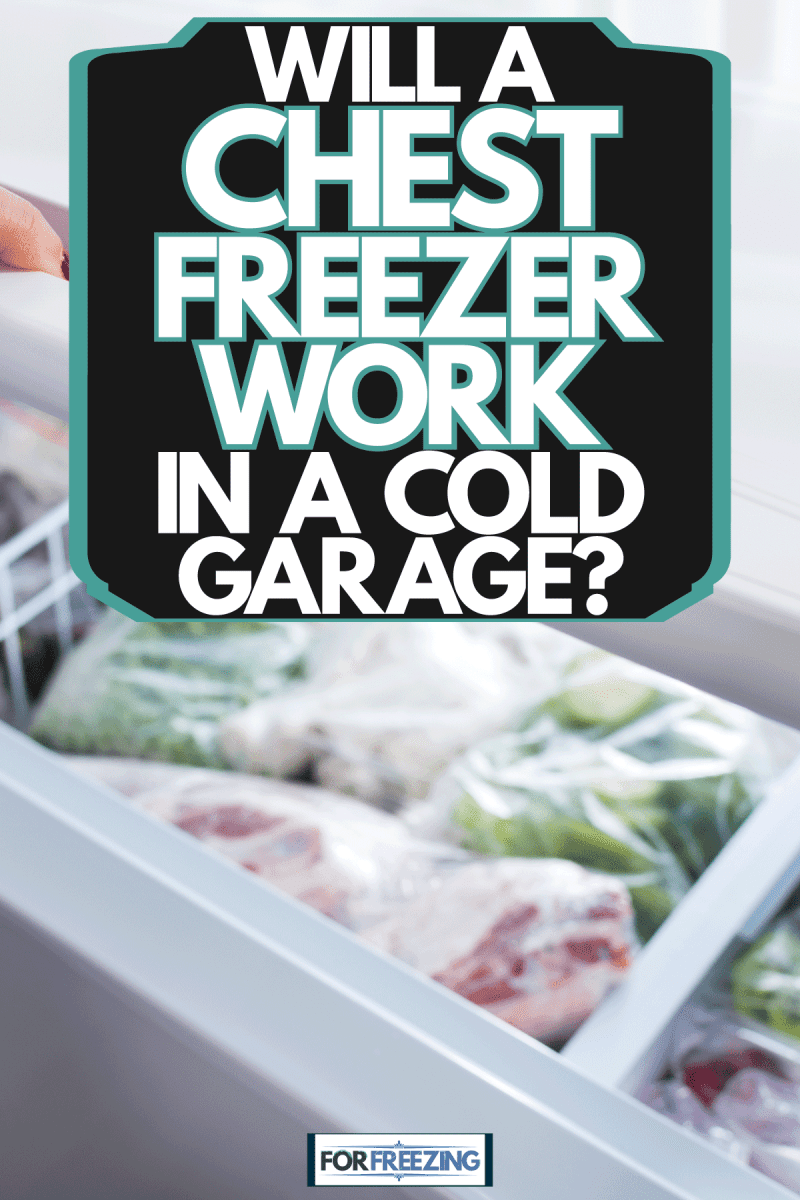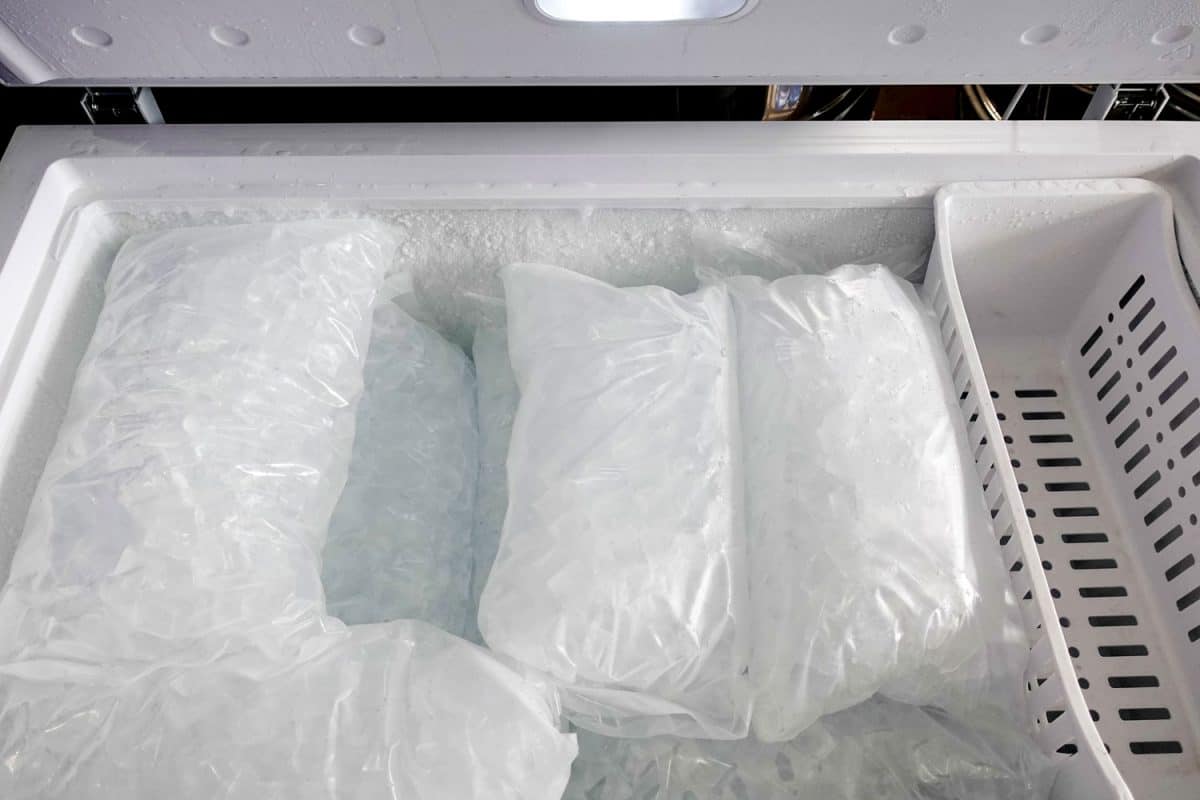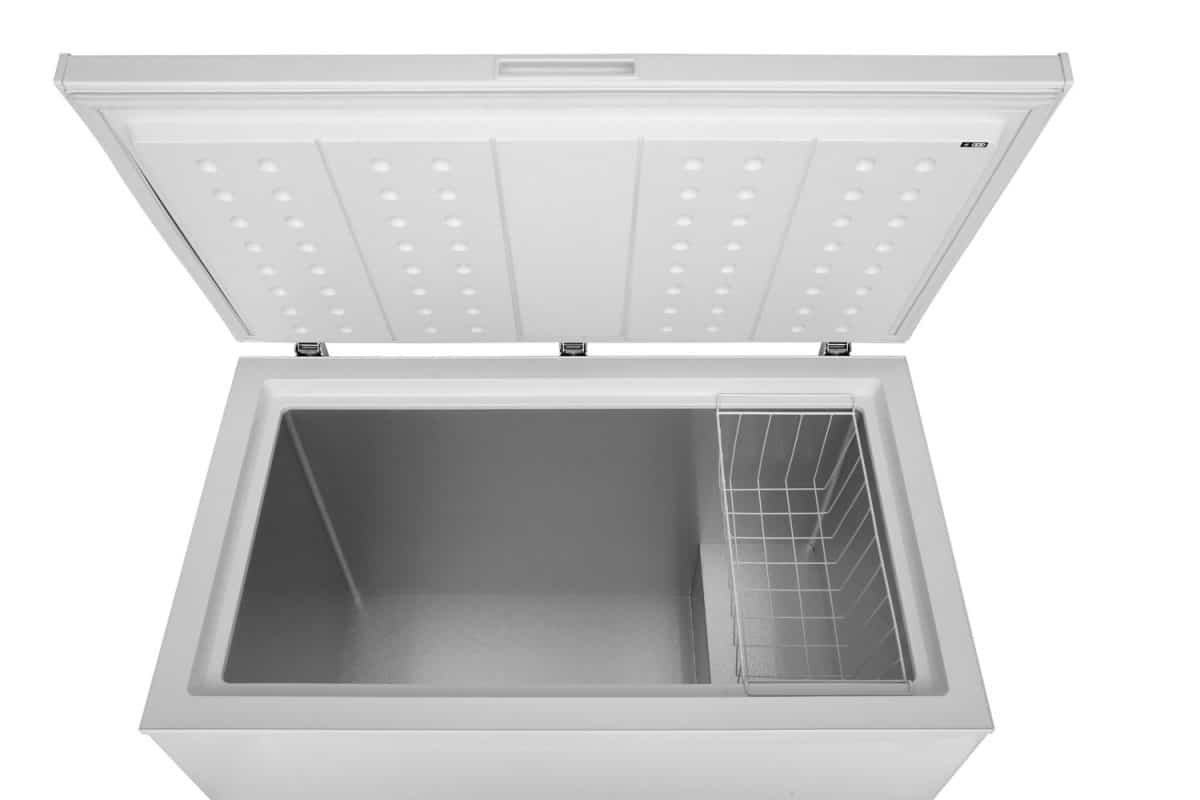Owning a garage means that, space-wise, it can most likely house your very own chest freezer. But like with any piece of an appliance, a chest freezer comes with some responsibility and that includes asking yourself how to best prepare your garage for one. Don’t worry! A chest freezer may seem like a troublesome investment, but carry on reading and you will realize that the logistics are nothing to worry about.
A chest freezer, regardless of the model, works best in areas with controlled temperature--your garage shouldn’t be too hot or too cold. If you store your chest freezer in a garage that is too hot, the machine will be forced to compensate by increasing its efforts to maintain that freezing temperature required to keep your goods frozen. Comparing a heated garage to a cold garage, the latter would not exhaust the chest freezer.
Chest freezers and their storage shouldn’t give you a headache. This post will give you some direct and helpful tips to turn your cold garage into a chest freezer-ready garage. No more second-guessing about whether chest freezers are a good idea or not!
NOTE: WE MAY GET A COMMISSION IF YOU DECIDE TO MAKE A PURCHASE THROUGH THESE LINKS. THERE'S ADDITIONAL NO COST TO YOU. CHECK THE BOTTOM OF THE PAGE FOR MORE INFORMATION.

How Do You Protect Your Freezer In A Garage?
First of all, you need to get to know your chest freezer. There are many types of chest freezers out there to choose from and to suit your specific needs but you shouldn’t bypass knowing all about their modifications and uses. The user manuals are meant to tell you all about these machines, but oftentimes there is just too much information and instead, it leaves you more confused or frustrated.

It’s hard to enjoy your appliance if you can’t get it set up correctly. So, what are the first few things you need to do or to ensure that you have already?
1. Appliance Thermometer
Chest freezers are mainly used to put away food or drinks for long-term storage. They help with proper food handling by controlling temperature to prevent bacterial exposure. The keyword here is temperature, and a thermometer is your best friend. Like how an oven thermometer measures the heat inside the oven, a freezer thermometer works the same way and measures the cold temperature.
This is an important factor that does a lot to protect the chest freezer because of the temperature it has to maintain, not only to keep the food inside it frozen but to continue working at peak level efficiency. A thermometer can clue you in that the space surrounding it has become too hot or too cold. It will help you prevent outcomes such as the machine overheating or when it gradually loses its effort to raise its freezing temperature because of the already present cold temperature in the garage.
2. Space
A chest freezer is bulky and it needs a lot of space. It’s mostly why some people think to store it outside the house. It shouldn’t be placed in a congested area where the machine cannot breathe. A grave mistake would be to thoughtlessly store the freezer in any available space without thought for humidity or space.
Remember, chest freezers require an area with controlled temperature. Its placement in your household will affect its effectiveness and it will determine how long the machine will last. Which makes storage space an equally important factor in protecting your chest freezer for outdoor usage, like a garage or on a patio.
3. Electricity Line
Have you ever experienced an appliance short circuit? Electrical lines are a serious consideration in storing a chest freezer in a garage. This type of appliance, because of its size and purpose, demands a high-resistance electrical line to support its high-volume electrical current. If your garage cannot support the volume demand of the freezer and you did not know this, it may become a big problem. At best, it increases your electricity bill but at worst, it may corrode the electricity line or damage the chest freezer.
What Does It Mean When A Freezer Is "Garage-Ready"?
If you Google search chest freezers, the results will probably show you some examples of Garage-Ready freezers. In simplest terms, these are chest freezers designed to withstand humidity or cold temperatures. They are modified to suit storage in a garage. Some people would prefer to buy a garage-ready chest freezer when they are determined to store it in a place where the temperature may vary or variables like extreme temperatures can occur.
Shopping for that perfect garage-ready freezer can get tiring. On the market today, the top 5 garage-ready freezers are the following:
- GE Garage Ready Manual Defrost Chest Freezer
- Frigidaire Chest Freezer
- Maytag Chest Freezer
- Midea Chest Freezer
- Arctic King Chest Freezer
Can You Plug A Chest Freezer Into An Extension Cord?

It is strongly advised not to use an extension cord to plug in a chest freezer. Or any heavy appliance for that matter. Extension cords are the best use on appliances or machines that need to be plugged in temporarily. A chest freezer requires a high-electricity current for more permanent usage. You do not want to keep plugging and unplugging your chest freezer because it will affect its effectiveness to keep the freezing temperature at the desired level.
A refrigerator or a chest freezer will mostly always need to be connected to the main electricity line to prevent short circuits, fire hazards, machine damage, and an increased electricity bill. Extension cords are useful in a garage but they can also be a bother because they are not pleasing to the eyes and you cannot hide them under the floor, above the ceilings, or through any walls. These requirements are suited for permanent electrical lines.
But, if need be, there are other ways around establishing a safe electrical line with an extension cord. Here is where a grounded extension cord comes in where that additional third wire offers a semblance of safety. It is still not advisable to use extension cords with chest freezers but there are available heavy-duty extension cords that can be considered.
Conclusion
Chest freezers sometimes really don’t belong inside the house. The good news is that some freezers are equipped to be stored in a garage. But because it is a heavy appliance that demands some high volume electrical current, there are important measures to safeguard to ensure that your machine will work at its peak level of efficiency.



